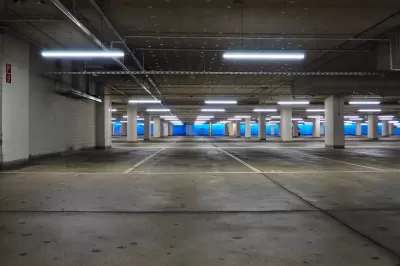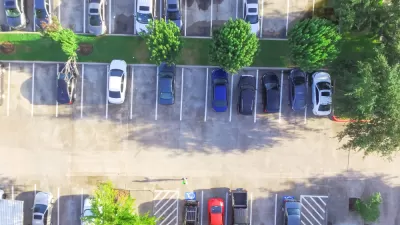The zoning change will significantly reduce the cost of building affordable housing developments.

The Denver City Council has approved a change to the city's zoning code that reduces minimum parking requirements for affordable housing developments, reports Daliah Singer. "Among other things, the just-updated code lowers the 'affordable housing alternative minimum parking ratio' for affordable housing projects in any district to 0.1, or one spot for every 10 units. It also upped the applicable AMI from 40 percent to 60 percent to encompass more housing."The update comes as an acknowledgement of the pivotal role parking requirements play in housing affordability and the vast number of unused parking spaces in the city's housing developments. A December 2020 study found that income-restricted properties provide, on average, "50 percent more parking than residents use." Another audit of affordable and supportive housing in the city found that "Denver’s zoning code required 5.5 times more parking than was needed."
The excess isn't just wasted space, Singer says. "Experts say parking is one of the most significant barriers to affordable housing projects both locally and across the country, sidelining or completely halting in-the-works projects because developers couldn’t make the zoning-required parking work." One parking space costs, on average, "between $20,000 and $30,000 to construct and maintain. The Shopworks/Fox Tuttle study valued the cost of unused parking at $9,284,000—the equivalent cost to build an entire 40-unit affordable housing property."
Advocates of the zoning change hope it will inspire other cities to take similar actions. In Denver, "[t]he change is having an immediate impact: Charity’s House Apartments, a supportive housing complex in Five Points that Shopworks is involved with and had been halted for at least six months due to parking issues, is now able to break ground."
FULL STORY: Affordable Housing in Denver Just Got a Big Boost

Alabama: Trump Terminates Settlements for Black Communities Harmed By Raw Sewage
Trump deemed the landmark civil rights agreement “illegal DEI and environmental justice policy.”

Planetizen Federal Action Tracker
A weekly monitor of how Trump’s orders and actions are impacting planners and planning in America.

Why Should We Subsidize Public Transportation?
Many public transit agencies face financial stress due to rising costs, declining fare revenue, and declining subsidies. Transit advocates must provide a strong business case for increasing public transit funding.

Understanding Road Diets
An explainer from Momentum highlights the advantages of reducing vehicle lanes in favor of more bike, transit, and pedestrian infrastructure.

New California Law Regulates Warehouse Pollution
A new law tightens building and emissions regulations for large distribution warehouses to mitigate air pollution and traffic in surrounding communities.

Phoenix Announces Opening Date for Light Rail Extension
The South Central extension will connect South Phoenix to downtown and other major hubs starting on June 7.
Urban Design for Planners 1: Software Tools
This six-course series explores essential urban design concepts using open source software and equips planners with the tools they need to participate fully in the urban design process.
Planning for Universal Design
Learn the tools for implementing Universal Design in planning regulations.
Caltrans
Smith Gee Studio
Institute for Housing and Urban Development Studies (IHS)
City of Grandview
Harvard GSD Executive Education
Toledo-Lucas County Plan Commissions
Salt Lake City
NYU Wagner Graduate School of Public Service





























